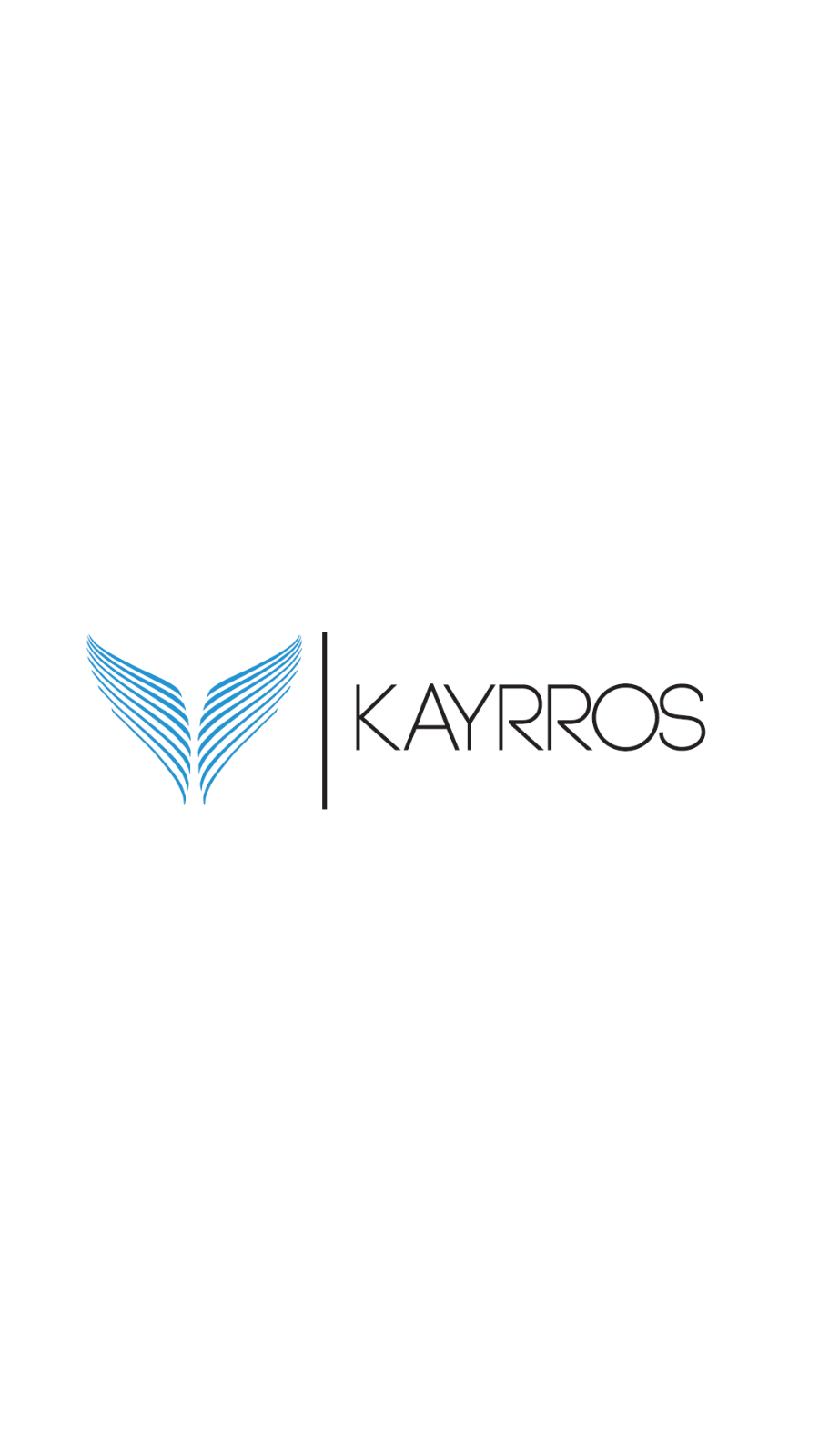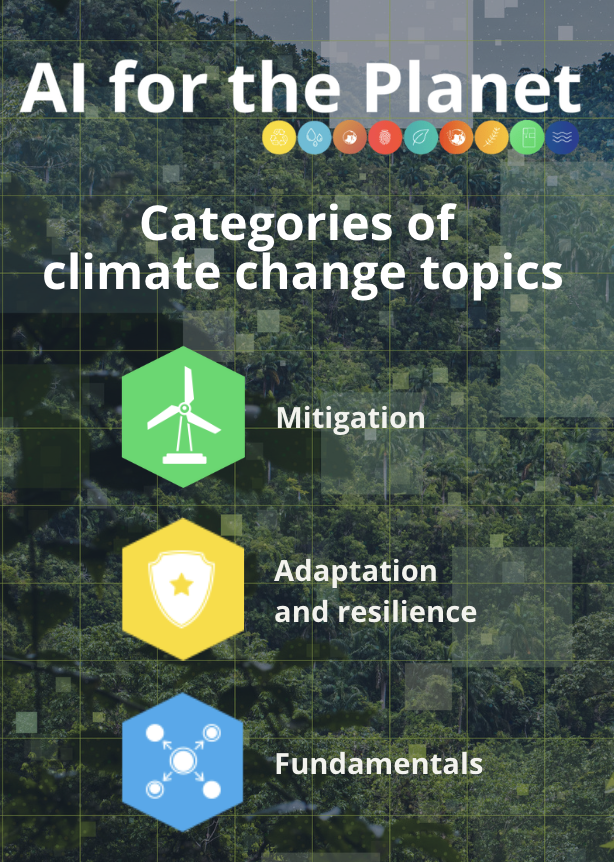Call for Solutions
Vainqueurs 2022
En savoir plus sur les vainqueurs et les quatre prix qui seront décernés aux gagnants par nos partenaires.

Conservation X Labs’ Sentinel
Project presentation:
AI for the frontlines of the biodiversity crisis. Conservation X Labs’ Sentinel upgrades wildlife monitoring tools — like trail cameras and acoustic recorders — with revolutionary and intuitive AI technology, processing environmental data in real-time as it’s collected.
How Sentinel helps the climate:
Sentinel is built to give you information from the wild in minutes instead of months. This eliminates the need for the huge amounts of time and resources otherwise spent checking field sensors, replacing batteries and SD cards, and processing data manually. As a result, we are reducing the amount of carbon emissions released through less fuel and power used in day-to-day workflows.
How the project leverages AI/analytics:
Sentinel is an all-in-one AI product from model training to data processing on field sensors. Our devices and software make using AI intuitive and manageable, even in the most remote parts of the world.
Funding Stage:
Pre-seed
Country:
USA
Geographical Area presence:
Sentinel AI is currently been testing and deploying in Costa Rica, Colombia, Republic of the Congo, Virginia, Montana, Hawaii, California
.png)
Yokahu
AI parametric insurance for climate risk transfer.
How Yokahu helps the climate:
Climate change disproportionately affects the global south. We are a solution that provides financial resilience to these populations for the first time. Historically less than 10% of economic loss in the global south has been insured. We create the solutions these communities need and allow the global insurance industry to reach them.
How the project leverages AI/analytics:
Yokahu uses the latest in data science and artificial intelligence to develop advanced risk models on which to base new products. Our in-house data science team is adept in the latest geospatial predictive modeling techniques, including Monte Carlo & Markov Chain simulation, extending existing climate models for better near-future forecasting, and directed graphs & Entropic superposition modeling.
Funding Stage:
Late Seed
Country:
UK
Geographical Area presence:
Available Globally
.png)
Albo Climate
Project presentation:
Powered by AI and satellite data, Albo Climate, established in 2019 in Tel Aviv, has developed state-of-the-art remote sensing technology for carbon removal and land-use monitoring, thereby creating a new paradigm of transparency and scalability in Nature-Based Climate Solutions.
How Albo Climate helps the climate:
By applying proprietary AI algorithms to satellite data, Albo Climate precisely quantifies and maps land use and carbon dynamics at high accuracy and resolution, deploying next-generation digital MRV (Monitoring, Reporting, and Verification) and catalyzing carbon financing to reach gigaton-level of nature-based CO2 removal. Albo Climate aims to unlock the massive potential of Nature-Based Solutions to sequester atmospheric carbon and mitigate the adverse effects of climate change while increasing the accuracy, confidence, and transparency of nature-based carbon offsetting strategies.
How the project leverages AI/analytics:
Albo Climate leverages AI to provide accurate and scientific data on carbon removal in high-impact Nature-based Solutions. Albo developed a suite of AI models to quantify and monitor carbon removal both above ground and below ground (Soil Organic Carbon), making our technology deployable to any ecosystem.
Funding Stage:
Seed
Country:
Israel
Geographical Area presence:
North America, South America, Southern Africa, Europe, South-East Asia, Australia
.png)
Pachama
Project presentation:
Using AI to protect and restore nature to help solve climate change.
How Pachama helps the climate:
Nature could contribute as much as 30% of what’s needed to meet this decade’s Paris Agreement goals. However, today’s carbon market has not managed to make a significant dent in global carbon emissions. The market has also suffered from well-publicized concerns about credit quality, damaging trust in the market.
Pachama helps businesses confidently invest in nature to meet their climate goals today and make long-term strategies for the future. Harnessing the latest advancements in remote sensing and machine learning, we rigorously evaluate existing forest projects to find the highest quality credits and start new reforestation and conservation projects from the ground. Pachama is building a digital measurement, reporting, and verification platform that will help deliver high-quality and transparent crediting at a fraction of the time and cost of today’s traditional methods. This modern future will bring more high-quality projects to the market, allow businesses to make more informed carbon investment decisions, and drive more funding to the communities restoring and protecting the land.
Since Pachama was founded, it has evaluated over 150 forest carbon projects globally and started a number of new restoration and conservation projects in Brazil, Mexico, and the United States. 2.3M tons of CO2e has been avoided or removed as a result of investments in carbon credits through the Pachama marketplace.
How the project leverages AI/analytics:
Harnessing the latest advancements in satellite imagery, remote sensing, and machine learning, Pachama evaluates the carbon stored in our forests and monitors forest growth over time. Pachama’s remote sensing-based machine learning models can observe forest change both within a project and the surrounding region, enabling a data-driven approach to computing a project’s emissions impact. Without a satellite view of the landscape, status quo crediting often relies on assumptions and varied calculation methods that can result in over-crediting. Pachama’s technology aims to produce high-quality, transparent, and scalable crediting that can restore nature globally.
Funding Stage:
Series B
Country:
USA
Geographical Area presence:
Pachama has supported Avoided Deforestation, Reforestation, and Improved Forest Management projects in 15 countries, including the United States, Brazil, Indonesia, and Colombia.
.png)
Xylem
Project presentation:
Xylem’s WWNO analytics and optimization algorithms help utilities unlock the power of their system data to manage and operate their wastewater and stormwater networks and achieve greater compliance with local water quality requirements and regulations.
How WWNO helps the climate:
WWNO helps the climate by helping water managers optimize the assets they already own to reduce combined and sanitary system overflows, reducing the stress on receiving water bodies and reducing the amount of construction required to achieve regulatory compliance.
How the project leverages AI/analytics:
WWNO’s analytics use machine learning and AI to amass large system data sets and run thousands of simulations in a highly efficient and real time manner. The near real time analytical outputs can be presented and used across a water utility to inform management, operations, and other stakeholders.
Funding Stage:
Publicly traded company
Country:
USA based, operating globally
Geographical Area presence:
Global
.png)
Aquaconnect
Project presentation:
Full-stack Aquaculture Platform To Bring Sustainability Through AI & Satellite Remote Sensing.
How Aquaconnect helps the climate:
Our platform quantifies the emission from the pond and measures the carbon footprint. This is the first step towards seafood decarbonization is to understand the impact on the ecosystem.
How the project leverages AI/analytics:
We use AI and Deep Learning models to identify the Pond boundaries, Differentiate Shrimp and fish ponds, Predict the Days of Culture, and current pond status and capture the pond parameters through satellite providers.
Funding Stage:
Series A
Country:
India
Geographical Area presence:
6 states in India
.png)
Kanop
Project presentation:
Kanop is an AI-powered SaaS platform to measure the environmental benefits provided by nature-based projects around the world.
How Kanop helps the climate:
By 2030, nature-based solutions are projected to account for one-third of all carbon mitigation worldwide. Measurement, Reporting, and Verification (MRV) is crucial for effective climate action and is necessary for evaluating the climate impact of nature-based solutions. Our platform enables nature-based project developers of all sizes to scale MRV without incurring cost overruns, making it easier to identify success metrics. These benefits will drive the global development of impactful nature-based projects, resulting in increased carbon removal and reduced carbon emission to combat climate change and promote biodiversity restoration in ecosystems where these projects are implemented.
How the project leverages AI/analytics:
AI is the foundation of Kanop's value proposition. We apply state-of-the-art machine learning models to earth observation data in order to accurately assess the climate benefits projects provide. We build and train proprietary models so that they are tailored to deal with the different types of remote sensing images (optical and radar), different spatial and temporal resolution, on different types of projects.
Funding Stage:
Seed
Country:
France
Geographical Area presence:
World coverage
.png)
Husk Power Systems
Project presentation:
Husk uses AI to accelerate access to reliable and affordable energy and drive economic growth and better living standards for the 10% of the world population still living in energy poverty.
How Husk Power Systems helps the climate:
Husk Power Systems offers a climate win-win, for both mitigation and adaptation. For mitigation, it displaces diesel generators that still dominate rural Africa and Asia, while also supporting its consumers to shift to more energy-efficient appliances and machinery and thus reduce their carbon footprint. Husk supports MSMEs by transitioning from diesel to solar power and provides an average of 30% savings on monthly energy costs, which allows businesses to invest in local communities, hire more workers and promote economic growth. This transition also leads to 80% of diesel generators being taken offline, reducing CO2 emissions, NoX, particulate matter, and noise pollution. Husk's efforts contribute to a cleaner, healthier, and more sustainable environment. From an adaptation perspective, minigrids also provide more climate resilient energy infrastructure that can better withstand climate disruptions like flooding, drought and other extreme weather events.
How the project leverages AI/analytics:
Husk Power Systems leverages AI and analytics to revolutionize the management and scaling of its minigrids. Its innovative technology platform automates asset management and enables optimized utilization, service, and billing automation using IoT, smart meters and a digital customer platform. This platform with advanced AI can remotely manage thousands of assets autonomously at once, allowing for easy addition of new services and geographies. Through this technology, Husk is disrupting the traditional minigrid industry and accelerating its scaling efforts, aiming to build 5,000 minigrids by 2030.
Country:
USA
Geographical Area presence:
South Asia and Africa
.png)
Sprout
Project presentation:
Digital climate protection products for farmers.
How Sprout helps the climate:
Sprout provides farmers with the tools to transition with climate change by offering digital protection products such as early warning systems for crop weather risk Sprout Alerts and helping recover from extreme weather events with parametric insurance. These tools make it possible for farmers to make on-farm investments in sustainable agriculture.
How the project leverages AI/analytics:
Sprout uses machine learning alongside our farm-level data to improve our climate-based products. We have worked with NASA Harvest to map where coffee is grow in Kenya using and are estimating production levels using climate variables. We leverage satellite data and geospatial data to reduce costs and improve accuracy. create data that’s used in parametric insurance we design.
Funding Stage:
Seed
Country:
USA, Headquartered in California.
Geographical Area presence:
Operating in East Africa. Expanding to Central America soon.

Kayrros
Project presentation:
Kayrros helps governments & companies accurately measure wildfire risk to protect what matters.
How Kayrros wildfire monitoring helps the climate:
Kayrros enables climate adaptation, prevention and mitigation thanks to reliable data. Businesses and public authorities use our risk maps and analytics to predict the likelihood of wildfires, identify areas and populations at risk and implement risk mitigation strategies.
How the project leverages AI/analytics:
AI and advanced analytics are paramount to process a large volume of satellite imagery and fuse together the ~20 risk drivers (vegetation, urban expansion, slope, proximity to infrastructure...) included in the wildfire risk model. Advanced data analytics is used to refresh the risk model and generate new risk maps on a monthly basis. IA is also trained to detect high-risk zones and display the driving risk factors at the asset or area level.
Funding Stage:
In March 2022, Kayrros raised €40 million from investors including the French Public Investment Bank Bpifrance, BNP Paribas, and the European Investment Bank to support the development of its geospatial detection technology. Kayrros has raised $78.6 million to date.
Country:
Headquartered in Paris, with offices in Houston, New York, London, Bangalore and Singapore.
Geographical Area presence:
Our wildfire solution is currently deployed in North America, Europe and Australia. The solution is scalable worldwide.
Critères d'éligibilité pour les candidats
Les équipes proposant des idées impactantes, scalables et solides sur le plan scientifique sont éligibles pour cet appel à projets si elles :
Nous accueillons les candidatures de toutes les solutions qui répondent aux six critères. Les caractéristiques suivantes sont encouragées, mais pas obligatoires :
• mettre l'accent sur les défis auxquels sont confrontés les habitants des pays en développement et des pays émergents
• suivre les principes du bien public numérique et/ou les solutions de type " open data ", " open source ", " open algorithm ".
• sont conçus pour réduire la fracture numérique ou pour fournir des services aux populations vulnérables ou marginalisées telles que les personnes vivant dans la pauvreté, les femmes, les communautés autochtones, les acteurs de l'économie informelle, les agriculteurs ruraux, etc.
• sont approuvées par une organisation ou un expert du domaine concerné (par exemple, une société, une agence gouvernementale ou un expert du sujet traité)

utilisent l'analyse avancée et l'intelligence artificielle (IA), comme le Machine Learning, ou d'autres formes de data analytics et de data engineering, et le faire de manière responsable

s'attaquent à un problème généralisé lié au changement climatique, avec la possibilité de créer un impact à grande échelle

ont un engagement organisationnel clair en faveur de l'impact social

sont issus du secteur public, à but non lucratif ou privé (y compris les startups), ou du milieu universitaire

sont à n'importe quel niveau de maturité, tant qu'il existe un prototype fonctionnel de la solution (c'est-à-dire prêt pour le premier pilote, au minimum)

sont dirigés par une équipe d'au moins 2 personnes

Critères d'évaluation
1. Impact environnemental positif Les candidatures doivent contribuer à la résolution d'un problème de changement climatique valide et important (ou de plusieurs problèmes) et démontrer comment leur solution aide à résoudre le ou les problèmes climatiques. L'analyse avancée et l'intelligence artificielle (IA) doivent être un élément central de la manière dont la solution propose de s'attaquer à ce problème climatique. Une attention particulière sera accordée aux solutions qui répondent aux défis auxquels sont confrontés les habitants des pays en développement et émergents, ou les populations vulnérables ou marginalisées.
2. Évolutivité Les applications doivent s'attaquer à un problème climatique répandu avec un marché cible ou une base d'utilisateurs suffisamment large, permettant à la solution de passer à l'échelle. Les meilleures solutions seront uniques ou additives aux approches existantes, et déjà déployées aujourd'hui avec des clients / utilisateurs. Une attention particulière sera accordée aux solutions à code source ouvert.
3. Solidité scientifique Les candidatures doivent avoir un fondement scientifique démontrant l'efficacité de la proposition, par exemple en fournissant des références à la recherche climatique sur le(s) problème(s) abordé(s) par la solution. Une attention particulière sera accordée aux solutions approuvées par une organisation ou un expert du domaine concerné.
4. Conception responsable Les candidatures doivent montrer qu'elles sont conscientes des préoccupations liées à l'IA responsable et illustrer comment ces risques ou conséquences involontaires sont gérés dans leur solution. Par exemple, les candidats peuvent s'inspirer des Principes de développement numérique.
5. Composition et représentation de l'équipe Les candidatures doivent mettre en évidence la diversité et l'expertise au sein de l'équipe, y compris la connaissance des sujets pertinents en matière de climat et d'IA.
Toutes les solutions éligibles recevront une reconnaissance, un accès et des prix.

Reconnaissance / crédibilité :
Inclusion dans le répertoire "AI for the Planet" des solutions d'IA pour le climat

Accès :
Invitations aux événements AI for the Planet qui réunissent des experts mondiaux du climat et de l'IA. Les solutions les mieux classées (les 10 premières) pourront bénéficier d'occasions de prendre la parole.

Possibilité de gagner un prix :
Les prix peuvent prendre la forme des trois catégories suivantes.
o Soutien financier
o Soutien commercial / technique
o Opportunités de networking

.png)
.png)

